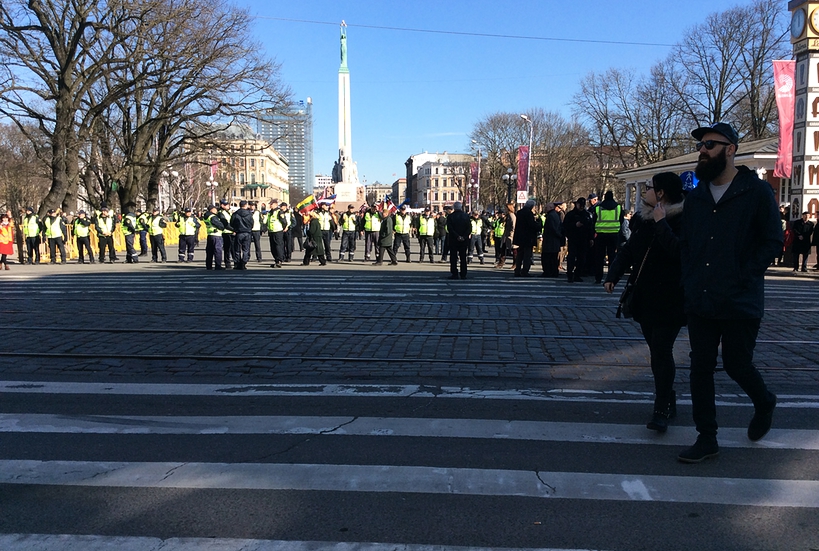"Sadly the date has come, once again, when our country attracts international attention," he told LTV.
"I can say we're preparing more seriously than the last few years," he said.
While Kozlovskis says the higher risks don't necessarily mean any organizations planning provocations or violence, there may be individuals who are ready for that.
The Interior Ministry has no information as to whether there are any radicals who've recently arrived in Latvia, but it's possible some have arrived via the border-free Schengen zone.
Barriers dividing opposing parties are to be erected by the Freedom Monument, and police will do what they can to prevent physical confrontation, said Kozlovskis.
The minister also clarified that higher risks are related both to the upcoming presidential election in Russia, as well as the parliamentary election in Latvia that takes place in the fall.
In the meantime, the Saeima shut down a proposal to make March 16 an official memorial day, with just 21 MPs expressing support for the initiative.
Last year five people were detained at the traditional though unofficial March 16 events, sometimes dubbed "Legionnaires' Day".
A British pro-Kremlin reportage purveyor was detained and deported the year before that, after making a nuisance of himself.
March 16 is a date that always causes controversy and sparks a wave of negative press in international media.
Though it is not included on the nation's official calendar of events, several hundred people always turn out to parade through the center of Riga and pay tribute to Latvian soldiers who served in the Latvian Waffen SS Legion and fought on the side of Nazi Germany in World War II.
Controversy inevitably follows with participants saying they are honoring freedom fighters or unwilling forced recruits, while opponents say the event promotes rehabilitating and glorifying fascism.
A less controversial commemoration of those who fought in the Latvian Legion also takes place on March 16 at the regimental cemetery in Lestene.





























